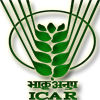on farm trials [oft] - KVK SULTANPUR U.p.
"Testing of any improved technology along with the farmers practice in the farmers field with active participation of both the scientists and farmers is known as OFT. In this method two to three improved varieties or two to three improved technologies are tested in the same field so as to compare the results of these treatments. As per the suggestions of the farmers as well as local soil and climatic conditions the improved technology may slightly be modified by the scientists of K.V.K. to get maximum return."

OFT
INTEGRATED CROP MANAGEMENT
Problem definition: Effect of Potash on bolting of Rabi Onion
Technology Assessed or Refined : Application of Potash as basal dose and foliar spray with NPK (18:18:18) @ 5 kg/ha. Bolting of Onion in Rabi crop affect the quality of onion as well as storage durability. The seedling were raised in Nov.-13 and planted in Jan-14 with application of 100kg of MOP as basal dose gave a yield of 173 q/ha, whereas, spray of NPK @ 5 kg/ha along with FP gave maximum yield 196 q/ha. Basal dose of DAP @ 110 kg and urea 80kg/ha gave lowest yield of 128q/ha.
Table Effect of K on bolting in Onion
| Technology Option | No. of trials |
Yield (t/ha) |
Affected Plant (%) |
Increase in Yield (%) |
Net Returns (Rs./ha) |
B:C ratio |
|
12 |
12.8 |
6.6 |
- |
94950.00 |
2.61 |
|
17.3 |
1.1 |
35.15 |
147230.00 |
3.43 |
|
|
19.6 |
1.3 |
53.125 |
176280.00 |
3.99 |
PEST AND DISEASE MANAGEMENT
Problem definition: Wilting of chilli
Technology Assessed : Treatment of seedling with 0.2 % COC
Wilting in chilli due to root rot / collar rot became serious problem. The affected plants created a major gap and affected the plant population which reduces the yield drastically. To control the wilting, the seedlings were treated with 0.2 % COC liquid solution for 5 minutes before planting which reduces the wilting of plant and increases the yield of green chilli (88.4 q/ha). The mortality of plants were higher (36 %) with minimum yield of 56 q/ha.
Table : Control of wilting in chilli var. Suryamukhi.
Technology Option |
No .of trials |
Yield (t/ha) |
Affected Plant (%) |
Increase in Yield (%) |
Net Returns (Rs./ha) |
B:C ratio |
| T1- FP DAP + Urea 80 kg/ha No seedling treatment |
8 |
5.600 |
36 |
- |
13630 |
1.32 |
| T2- DAP 120 kg + Urea 80 kg/ha and seedling treatment with 0.3 % COC | 8.84 |
2 |
57.85 |
44090 |
1.99 |
INTEGRATED NUTRIENT MANAGEMENT
- Problem definition: Low productivity of pigeon pea due to under dose of nutrient
Technology Assessed : Foliar feeding of N at flowering initiation
Pigeon pea is an important pulse crop of Sultanpur distt but the farmers were mainly grew the crop in marginal soil with marginal package of practices. The farm trial was conducted to assess the effect of N with the foliar application of 2% urea solution at the time of flower initiation. From the observation, It has been noted that the yield was increased up to 25 % (16.80 q/ha) against the check 12.60 q/ha.
Table: - Effect of foliar application of N 2 % on yield of pigeon pea
| Technology Option | No.of trials | Yield (kg./ha) |
Increase in Yield (%) |
B:C Ratio |
| No seed treatment, Application of DAP @80-100 kg/ha basal dose | 4 |
1260 |
- |
2.04 |
| Seed treatment with RC, DAP @ 100 kg/ha and spray of 2% Urea | 1680 |
25 |
2.24 |
- Problem definition: Effect of foliar feeding on productivity of lentil under un- irrigated condition.
Technology Assessed : Foliar feeding of NPK (18:18:18) before flowering.
Lentil is often cultivated by the farmers under un-irrigated condition with marginal amount of fertilizer. NPK (18:18:18) was sprayed @5 kg/ha before flowering. The data was recorded on yield of grains (17.2 q/ha) followed by the crop without spray (12.6 q/ha).
Table : - Effect of foliar feeding of NPK 18:18:18 on yield of lentil
| Technology Option | No.of trials |
Yield (kg./ha) |
Increase in Yield (%) |
B:C Ratio |
| FP- Basal dose of DAP @ 80 kg/ha | 8 |
1260 |
- |
2.63 |
| Foliar feeding of NPK 18:18:18 @ 5 kg/ha | 1720 |
36.5 |
- Problem definition: Effect of foliar feeding on yield of chick pea.
Technology Assessed : Foliar feeding of NPK (18:18:18) under un-irrigated condition
Chick pea is an important crop of pulse grown under un-irrigated condition with nominal dose of fertilizer and without inoculation of bio fertilizer. The seeds were treated with RC and PSB culture. The yield was enhanced after foliar feeding before flowering by 18.20 q than the crop raised with basal dose of DAP (12.5 q/ha).
Table:- Effect of foliar feeding of NPK 18:18:18 on yield of chick pea
Technology Option |
No.of trials |
Yield (kg./ha) |
Increase in Yield (%) |
B:C Ratio |
FP-basal dose of DAP @ 100kg /ha |
8 |
1250 |
- |
2.1 |
Foliar feeding of NPK 18:18:18 @ 5 kg/ha |
1820 |
45.6 |
2.87 |
- Problem definition: Effect of FYM along with optimum dose of NPK on yield of wheat grain var. GW-273.
Technology Assessed: Application of FYM @ 200 q./ha along with NPK @ 90:46:0 /ha
Application of FYM @ 200 q along with fertilizer dose NPK @ 90:46:0 gave higher yield (38.4 q/ha) against the yield obtained from NPK 90:46:00 (33 q/ha) Table:- Effect of NPK along with FYM on yield of wheat grain
| Technology Option | No. of trials |
Yield (kg./ha) |
Effective shoots % |
Increase in Yield (%) |
Net Retrun Rs /ha |
B:C Ratio |
| FP- NPK@ 90:46:0 | 8 |
3300 |
7.3 |
- |
24275 |
1.54 |
| FP-FYM @ 200 kg/ha | 3840 |
9.4 |
16.36 |
28630 |
1.97 |
- Problem definition: Effect of foliar feeding of NPK(18:18:18) on yield of potato var. K-bahar.
Technology Assessed : Foliar spray of NPK (18:18:18)@ 5kg/ha at the stage of stolen formation.
Potato crop was sprayed with NPK @ 5kg/ha at the stage of stolen formation. Assessment was made on productivity of tuber in var. K-bahar. After harvesting, it was found that an additional expenditure of Rs. 600 on NPK gave additional yield of 12 q/ha.
Table:- Effect of foliar feeding of NPK 18:18:18 on yield and net return of potato.
| Technology Option | No.of trials |
Yield (kg./ha) |
Increase in Yield (%) |
Gross Income Rs /ha |
Net Retrun Rs /ha |
B:C Ratio |
| FP- FYM 80q, DAP 100 kg + Urea 100 kg | 10 |
23600 |
- |
188800 |
78800 |
1.71 |
| FP + foliar spray of NPK 18:18:18 @ 5kg/ha | 24800 |
5.08 |
198000 |
84400 |
1.76 |
VARIETAL EVALUATION
Problem definition: Assessment of salt tolerant var. of wheat in reclaimed sodic soil.
Technology Assessed : Two salt tolerant varieties KRL-210, 213 and two varieties (PBW-154, GW-273) seeds were treatment with CSR-Bio @3ml /kg of seed.
Sodicity was one of the major problem in distt. Sultanpur and a large number of small and marginal farmers were growing paddy and wheat without discriminating of wheat variety suited to their field condition. The kvk was procured two varieties of wheat i.e KRL-210, 213 which are tolerant to salt and two varieties viz PBW-154, GW-273. The seeds were treated with CSR-Bio @ 3 ml /kg of seed. Out of these varieties KRL-210 gave higher yield of 42.50 q/ha followed by KRL-213 (38 q/ha) and GW-273- ( 37.20 q/ha). Var. PBW-154 have lowest yield of 32.5 q/ha.
Table:- Assessment of salt tolerant wheat variety in reclaimed sodic soil.
Technology Option |
No. of trials |
Yield (kg./ha) |
Effective shoots % |
B:C Ratio |
| Var. PBW-154 | 16 |
3250 |
5.2 |
1.72 |
| Var. GW-273 | 3720 |
7.5 |
1.89 |
|
| Var. KRL-210 | 4250 |
7.2 |
2.14 |
|
| Var. KRL-213 | 3800 |
7.0 |
1.91 |
BIO FERTILIZER
Problem definition: Effect of bio agent on yield of wheat grain var. GW-273
Technology Assessed: Assessment of CSR-Bio on yield of wheat of wheat grain
Basal application of CSR-Bio in the reclaimed sodic soils @ 20 kg/ha before showing gave an yield of 35.7 q/ha where, as, soil application followed by foliar spray of CSR-Bio liquid @ 3 ltr/ha gave higher yield of 43.2 q/ha. Minimum yield (26.0 q) of wheat grains was recorded in farmer’s practice.
Table :- Effect of CSR-Bio on yield of wheat grain
Technology Option |
No. of trials |
Yield (kg./ha) |
Effective shoots % |
Increase in Yield (%) |
B:C Ratio |
| FP-no use of bio fertilizer (DAP @100 kg + Urea 120 kg) | 12 |
2600 |
4.2 |
- |
1.31 |
| NP + Soil Treatment with CSR-Bio @ 20 kg/ha before sowing | 3570 |
6.5 |
37.30 |
1.68 |
|
| T1+T2+ Spray of CSR –Bio Liquid 3 ltr. / ha | 4320 |
6.8 |
66.15 |
1.90 |

